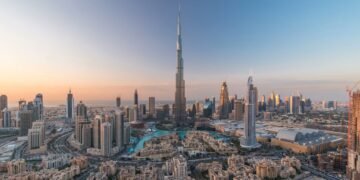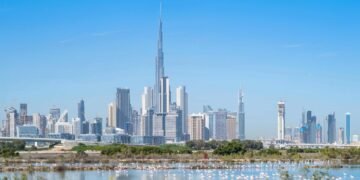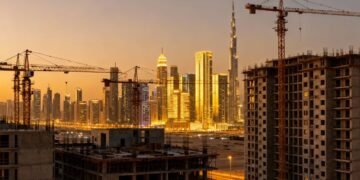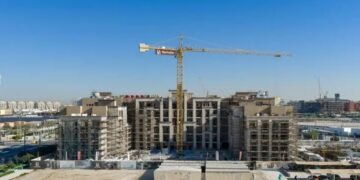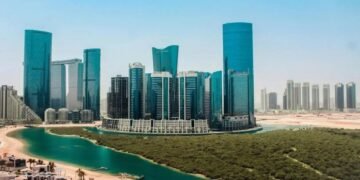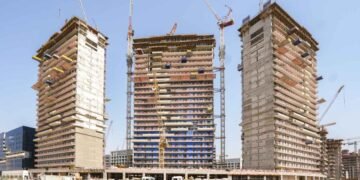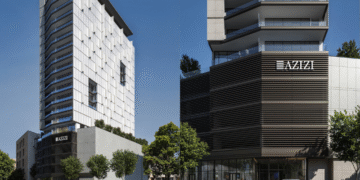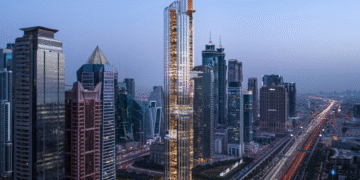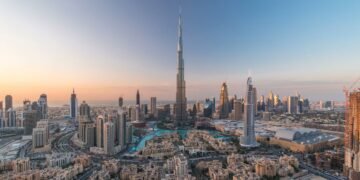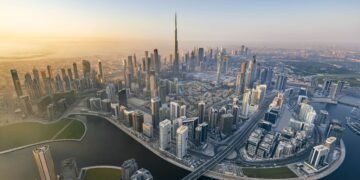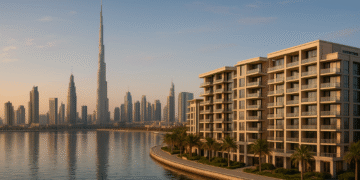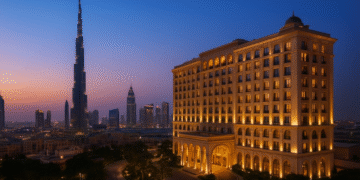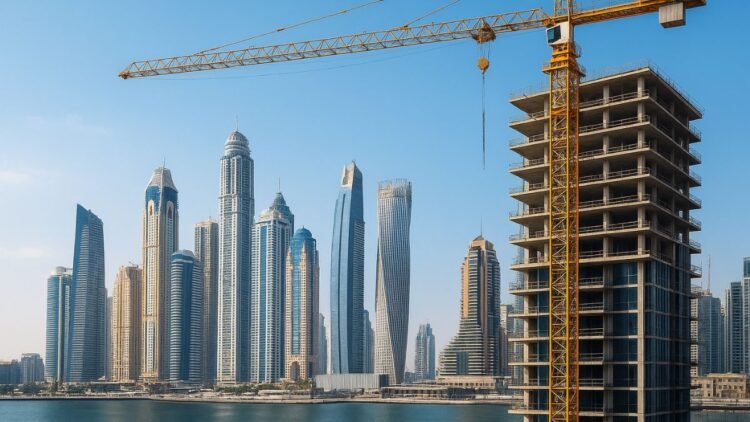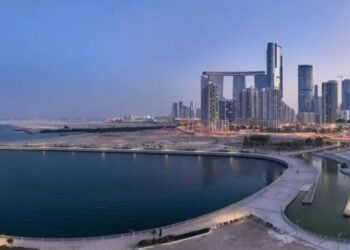Dubai, UAE – With Indian equities facing heightened volatility amid global macroeconomic uncertainties, investors are increasingly eyeing Dubai real estate as a hedge against Indian market volatility. Rising cross-border flows of private capital from India to the UAE property market underscore a diversification trend that has grown stronger since the pandemic.
Data from the Dubai Land Department (DLD) show that Indian nationals remain among the top foreign investors in the emirate’s real estate, with billions of dirhams invested annually. According to the Dubai Media Office, Indians were the largest non-resident property buyers in Dubai in 2022 and 2023, a trend that has continued in 2024.
Indian Investors Seek Stability
The attraction is clear: Dubai offers tax-free rental income, higher yields than most Indian metros, and residency options through property ownership. In the Ecocomic Times report, Richard Waind, CEO of Betterhomes, noted the pivotal role of Indian buyers: “Whether driven by end-user demand or investors seeking higher yields, Indians have been instrumental in new home purchases … Many using property investment as a path to the Golden Visa.”
For many, Dubai serves not only as a financial hedge but also as a lifestyle choice. The emirate’s proximity to India, connectivity, and regulatory clarity provide comfort to investors looking to spread risk away from home markets.
Supply and Market Risks Remain
Still, concerns about potential oversupply persist. Haider Tuaima, Director of Real Estate Research at Valustrat, cautioned earlier this year: “There’s plenty of supply coming in. If everything is handed over on time, then we will have a severe oversupply problem in the next few years.”
Contrastingly, developers and strategists argue that demand remains strong enough to absorb new stock. Issa Abdul Rahman, CEO of Kasco Developments, dismissed fears of overbuilding: “Dubai has become a globally relevant city … If there was an oversupply, why would prices be rising in Dubai?”
Rental Yields Versus Indian Markets
Dubai’s rental yields average between 6–8%, compared with 2–3% in Indian metros such as Mumbai or Delhi, according to CBRE data. Taimur Khan, Head of Research at CBRE UAE, highlighted that demand in the luxury and upper-mid segments has been particularly strong: “Most of these developments are actually well absorbed into the market … what it is effectively doing is addressing the current level of shortfall that we had historically.”
For Indian investors accustomed to modest returns in domestic residential markets, the yield differential provides a compelling case.
Policy Drivers and Residency Incentives
Visa reforms continue to reinforce this trend. The UAE’s five-year multiple entry visa, combined with the Golden Visa program, has made it easier for Indians to consider Dubai for medium- to long-term property investments. Diwakar Raj, Managing Partner at Foremen Fiefdom, explained: “The 5-year multiple visit visa has opened doors to a boost in investment opportunities in Dubai, further attracting Indian investors in a big way.”
Analysts add that the regulatory transparency of the Dubai Land Department and the dirham’s peg to the U.S. dollar enhance investor confidence, particularly when the rupee faces depreciation pressures.
A Long-Term Hedge, Not a Quick Flip
While short-term risks remain, such as potential supply gluts or shifts in global interest rates, most experts see Dubai as a long-term diversification play. Rizwan Sajan, Founder and Chairman of Danube Properties, argued that demographic and tourism drivers will sustain growth: “Supply will be available, but there is a significant number of people who want to make Dubai their second home.”
For Indian investors facing market volatility at home, Dubai real estate offers a mix of yield, capital appreciation potential, and lifestyle utility that few other international markets provide at a similar scale and proximity.
Practical Perspectives for Indian Investors
- Diversification
Indian investors traditionally rely on equities, gold, and domestic real estate. However, those assets are often correlated with the Indian economy. Allocating capital to Dubai property allows exposure to a different market cycle, supported by international demand drivers such as tourism, global trade, and expatriate inflows. This cross-border diversification can reduce overall portfolio risk, particularly during periods of volatility in India’s equity and property markets.
- Currency Hedge
The Indian rupee has faced persistent depreciation pressures against the U.S. dollar over the past decade. Since the UAE dirham is pegged to the dollar, Dubai real estate becomes a natural hedge for Indian investors. Rental income and eventual capital appreciation are effectively dollar-linked, helping preserve wealth in hard currency. This makes Dubai especially appealing for families with overseas expenses — education, travel, or dollar-denominated liabilities.
- Legal & Tax
Dubai’s rental yields, often ranging between 6–8%, are not subject to local income tax. However, Indian residents must still declare foreign property income under the Foreign Exchange Management Act (FEMA) and comply with taxation rules set by the Income Tax Department of India. Double Taxation Avoidance Agreements (DTAAs) may apply in some cases, but investors should consult cross-border tax advisors to avoid penalties or misreporting. The regulatory framework is straightforward, but compliance on the Indian side is essential.
- Entry Ticket
Dubai has linked property ownership to long-term residency incentives. As of 2022, investors purchasing property worth at least AED 2 million (approx. INR 4.5 crore) are eligible to apply for a 10-year Golden Visa, which grants residency rights to the investor and their immediate family. For high-net-worth Indians, this effectively combines real estate investment with a pathway to residency in a global hub, offering mobility, business advantages, and lifestyle benefits.
Dubai real estate’s resilience and incentives continue to attract Indian capital as a strategy to balance risks from domestic volatility. While investors must weigh oversupply and interest-rate-driven cycles, the market’s yields, residency pathways, and global positioning ensure its place as a hedge within diversified portfolios.
Discover more from Invest Dubai Today - Dubai Realty Insights
Subscribe to get the latest posts sent to your email.

